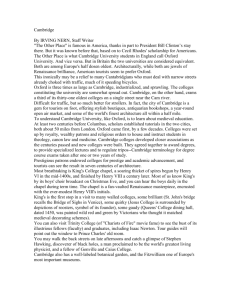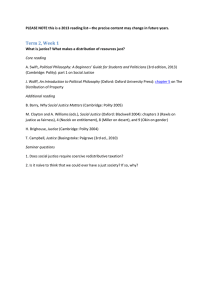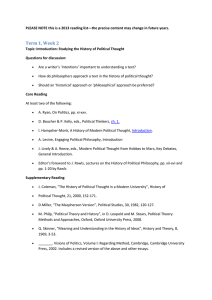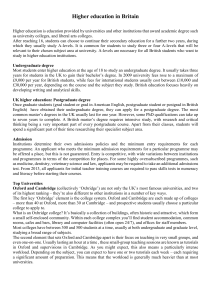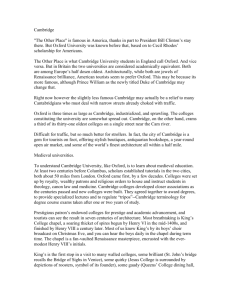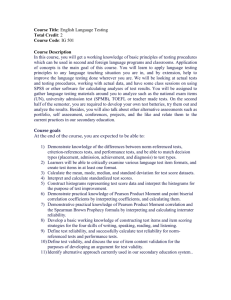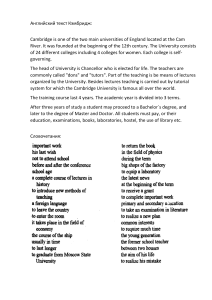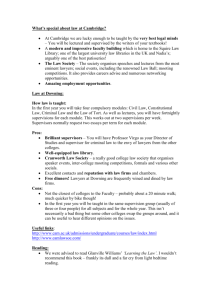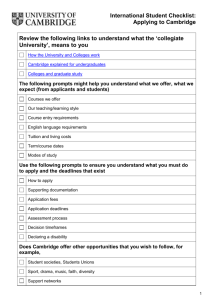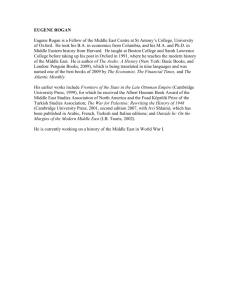Presentation from Dr Bell Cambridge March 201
advertisement
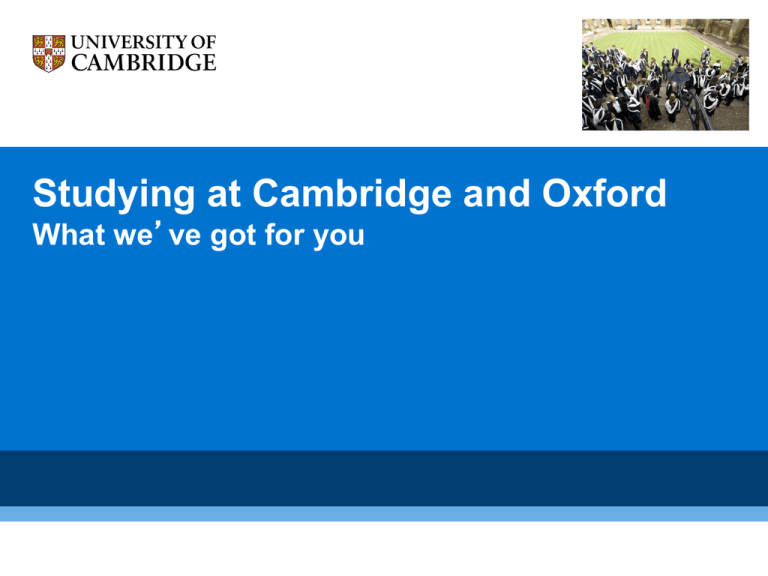
Studying at Cambridge and Oxford What we’ve got for you And few facts and figures • 18,000 full-time students • from over 90 countries • 29/30 undergraduate colleges • male:female ratio about 1:1 • state:independent ratio about 6:4 • 5 applicants per place Resources • Over 100 libraries • Over 11 million books, 80,000 magazine titles, 300 miles of bookshelves • £2 billion of science facilities • Museums in Art, History of Science, Natural History, Anthropology, Zoology, Geology… • World-class lecturers and researchers • Fantastic students The University and the Colleges The University The Colleges • decides on course content • admit undergraduate students • organises lectures, seminars, classes, practicals • provide learning, teaching and research at all levels • sets and mark examinations • organise supervisions • awards degrees • provide pastoral care Welfare and support • Academic and pastoral • Students supporting students • Director of Studies • Personal Tutor • University Counselling Service • Disability Resource Centre • Financial • University bursaries • College grants and hardship funds • College prizes and awards How courses work • All courses are very broad basis • • • • • most courses have few compulsory papers require students to range widely opportunity to specialise dissertation/project fast moving! • Joint Honours? • Cambridge courses in 3 parts • combine 2 of 1 with 1 of another • Joint honours at Oxford From sixth-form to university • • • • • • • • no, or very few, re-sits no bells, few collective timetables integrating elements in linear courses formative and summative assessment learning “the wrong way round” rapid progress students do not work to a mark scheme self-motivation and self-discipline Cambridge, Oxford and careers • The best way to get a good job is to get a good degree from a good university • Students do well at university in subjects that genuinely interest them: they enjoy themselves, get good results, and tend not to drop out • Apply to do a subject you will enjoy and do well in, whatever it is – remember a good degree gets you a good job! Degree choice and career prospects • Some careers require a specific degree, e.g. Architecture; Engineering; Medicine; Veterinary Medicine • Some jobs in the commercial or business world (~5% of the total) also require particular degree subjects: typically, Mathematics or Languages Banking and investment recruits Legal training recruits Graduate destinations of historians Graduate destinations of engineers

